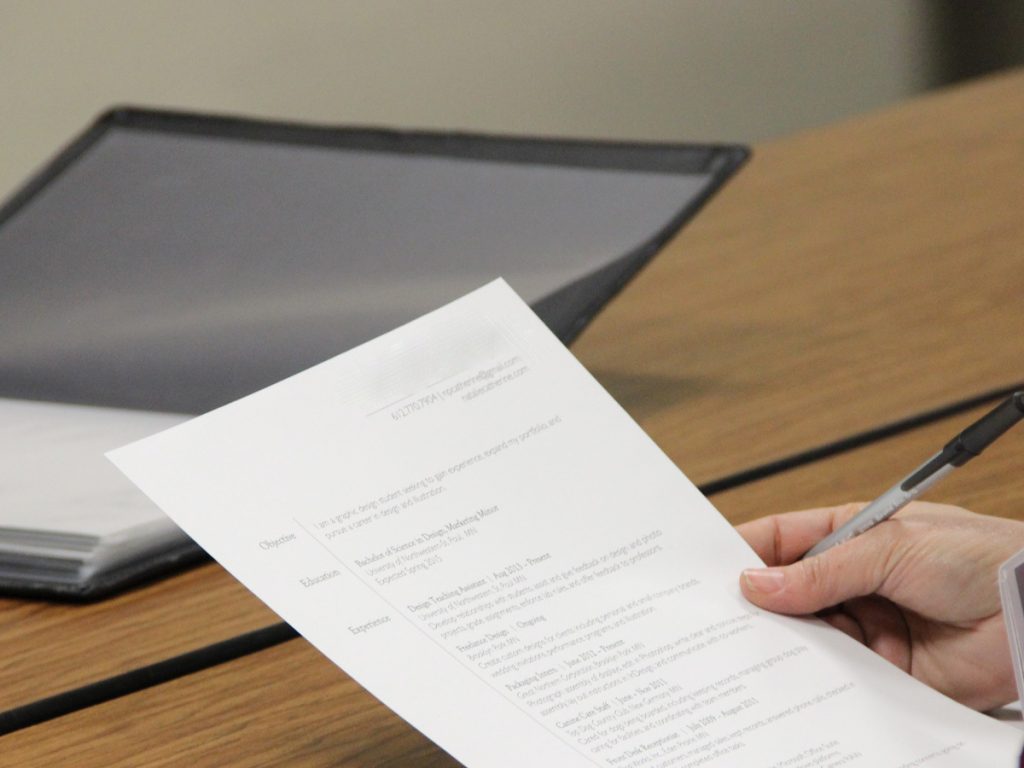We’ve all been there: sitting in front of the computer, trying to craft a convincing resume (but convincing ourselves that we don’t know how to write a resume, right?). Don’t worry, there’s help.
Northwestern’s Career & Leadership Development office specializes in coaching both students and alumni to “discover and strengthen their God-given design, find their unique direction, explore academic and career options, and prepare for and pursue their life’s vocation and service for the glory of God.” They’ve put together twenty must-know resume tips (that just might land your next big job).
20 Resume Tips
- While bold, italics and color can help important information stand out, you will need to use them conservatively and strategically. Overuse defeats their purpose.
- Keep your resume to one full page of vital information, the only exception being if you are going into nursing, ministry, teaching, or have a long tenure in one specific industry.
- Quantify your accomplishments. Which sounds better: “Increased sales” or “Increased sales by 10% for 6-straight months”?
- Your resume may only get 20 seconds of someone’s attention, so be sure to make it organized, consistent and as reader-friendly as possible.
- Your resume is not meant to be a list of job duties and responsibilities but a highlight reel of accomplishments and honed skills.
- Never use 1st person pronouns. Remove all the “I”s and “we”s from your resume.
- First impressions count, especially on resumes. Make sure to move your most impressive accomplishments toward the top half of your resume.
- List your experiences in reverse chronological order, meaning your most recent experience goes first, then your second most recent experience and so on.
- You do not need an objective section on your resume. It wastes precious space and can be better addressed in the cover letter.
- Your full name and contact information need to be bold and obvious to the reader. While you do not need a street address, your email and cell phone are still essential.
- Remember the two R’s of resume writing: recent and relevant. If your experiences aren’t either, then they do not belong on your resume.
- Highlight your transferable skills if you lack the industry-specific skills listed on the job description. Transferable skills include time-management, teamwork, problem-solving, and many more.
- Use a diverse array of words to describe your experiences. Avoid repetition and generic descriptions.
- Don’t forget to use keywords. The best places to find keywords are in job descriptions, company websites, and industry-specific literature.
- You do not need to include every job you ever worked. While you want to avoid massive employment gaps, including too many jobs makes a resume difficult to read and may suggest that you are a frequent job-hopper.
- You do not need to include a “references” or “references available upon request” section. Your application will likely have a separate area to upload this kind of information.
- Always upload or send your resume in PDF format to maintain proper structuring and style.
- You need a professional sounding email on your resume. “[email protected]” will likely be a turn-off to potential employers.
- Keep your font to size 10 or 12. Anything smaller will be illegible and anything bigger will take up too much space.
- Use easy-to-read fonts such as Times New Roman, Verdana, Arial, or Helvetica.

